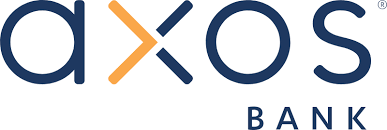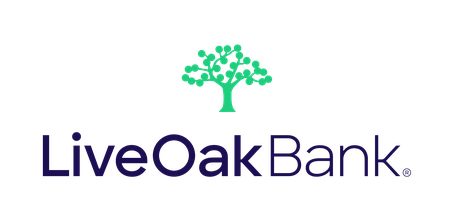Second chance banking offers people that have been locked out of traditional banks an opportunity at a fresh start.
Banks that offer second chance accounts help customers get their financial transactions back on track. It doesn't sound like a large number when you hear that 4.2% of U.S. households are unbanked—according to the latest FDIC survey.
But that adds up to millions of Americans that conduct their day-to-day financial business outside the banking system, often paying unnecessary fees to cash checks.
» MORE: Learn which banks offer a second chance
What is second chance banking?
Second chance banking is a practice that allows banks to offer checking accounts to customers who have a troubled banking history. Banks understand that poor financial management skills, ChexSystems records, EWS records, and even bad credit may prevent customers from opening a bank account.
When you open a bank account the financial institution must have a way to verify customers to determine if there's a risk in taking on a new customer. Some risks banks look for are:
- Bank accounts being closed due to excessive overdrafts
- Unpaid bank fees
- Suspected fraud
With second chance banking, negative banking history is overlooked, giving people a chance to re-establish a solid checking history. Here is a nationwide list of second chance checking accounts.
Why banks offer second chance checking accounts
Financial literacy is not routinely taught in schools. In fact, a recent report from the Council for Economic Education found that the number of states that require a high school student to take a personal finance course — either a standalone class or integrated into other coursework — in order to graduate is only 21.
Lack of financial education can have life-long implications for future finances. Banks know that people make financial mistakes, and many of them offer checking accounts designed specifically for people who need to rebuild their banking history.
This is where the opportunity of second chance checking accounts helps to restore your banking record.
Second Chance Checking has Pros and Cons
Pros of a second chance checking account:
- Restore a good standing banking history. A second chance checking account helps you rebuild your banking history, but you still need to practice good money management.
- Avoid excessive financial fees. Prepaid debit cards, money orders, cashier's checks, and check cashing services have one thing in common, FEES! Some Second chance checking accounts may have a monthly service but it will be insignificant compared to the above-mentioned alternative banking services.
- Reestablish your banking relationship. A good banking relationship can open opportunties for future financial products like a mortgage, car, business or student loan at competitive interest rates. Opening a second chance account is the first step in rebuilding your relationship with the bank.
Cons of a second chance checking account:
- Monthly maintenance fees. Many second chance checking accounts come with monthly maintenance fees. Over time, these can add up. While you might be able to avoid monthly service fees in some cases, most second chance banks will only waive these charges if you maintain a certain balance or set up a specific number of direct deposits.
- Lack of overdraft protection. Most second chance checking account do not offer overdraft protection.
- Won't rebuild credit. Banks do not report good banking habits to the credit bureaus so while a second chance checking account will do wonders for establishing a banking relationship, the account will not do anything to help repair bad credit. If you have bad credit, you'll need to take separate steps to improve it.
- Limited or no check writing. Checks are susceptible to various forms of fraud, including forgery, alteration, and counterfeiting and banks are rightfully hesitant to grant check writing privileges to customers with past banking issues. The good news is the limits or rules don't last forever. Once a solid banking relationship is established, customers can rebuild their banking history and restore their reputation as low-risk and restrictions are removed.
Challenge Mistakes with ChexSystems or EWS
Just like creditors report inaccurate information to credit bureaus, banks and credit unions make mistakes too. Challenge errors and inaccurate information reported to ChexSystems and EWS if you think you should have a clean record.
Order your ChexSystems and EWS report for free, once every 12 months. If you’ve been denied a bank account within the last 60-days you are entitled to a free report. Otherwise, there may be a fee.
Downsides to a second chance banking
Second chance checking accounts may come with monthly fees. Oftentimes a second chance bank or credit union puts new customers with past banking issues in a probationary period up to 12 months. The bank may want to monitor how well you manage your account before upgrading you to a regular account. Other downsides to second chance checking accounts may be:
- No checking writing
- Limited daily ATM withdrawals
- Direct deposit requirement
5 reasons to open a second chance bank account
1. Your money is safe. Keeping cash in your home puts you at risk of theft, fire, flood, loss, or damage. Bank accounts are FDIC-insured in the unlikely event that the bank fails.
2. Debit card protection. Federal laws protect you in the event of a debit card error or unauthorized electronic transaction as long as you notify your bank in a timely manner.
3. Safer online purchases. You can make online purchases with ease and peace of mind. Some bank accounts provide you with a debit card you can use to shop online. If your account is with an FDIC-insured bank, federal law limits your loss in the event of an unauthorized online transaction.
4. Array of financial products. You have access to other products from the bank. Once you have established a relationship with a bank through a bank account, you can consider other financial products to help you achieve your financial goals: credit cards, auto loans, and home mortgages.
5. Easy transfers. You can transfer money to family and friends with ease. Person-to-person payments and mobile app payments have become a part of everyday life for many people. With an FDIC-insured bank account, you can use these services and apps to send money to your friends and family without having to write a check, swipe a card, or hand them cash.














